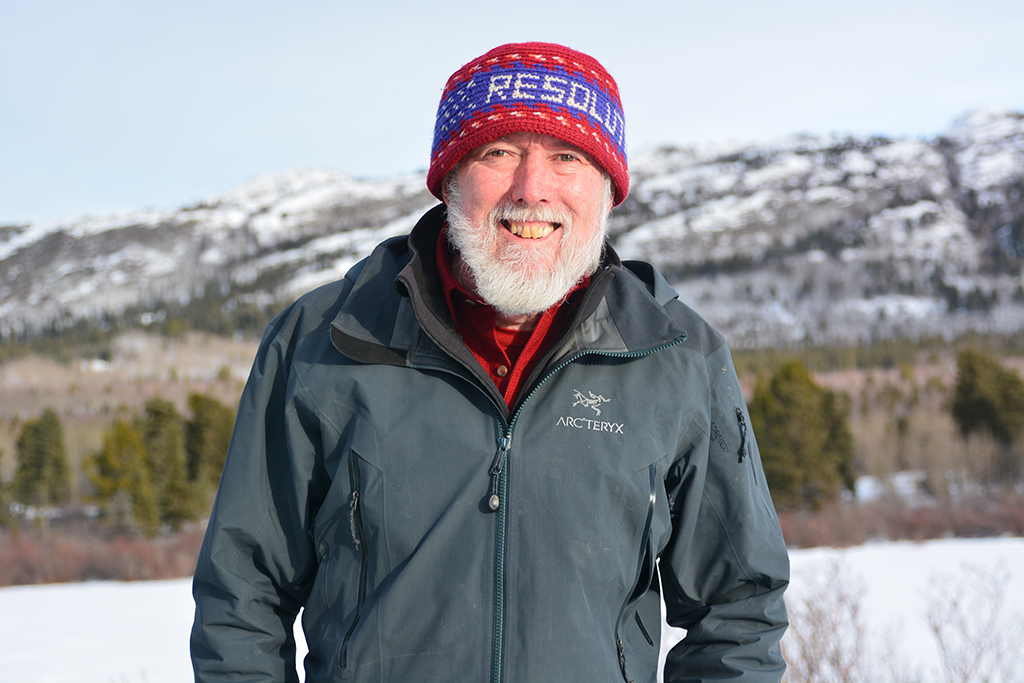
Canadian Arctic Scientist, John England received the Weston Family Prize for Lifetime Achievement in Northern Research for his fifty-year career.
"The first thing you do is fall in love with a place. Then you fall in love with the science."
Canadian Arctic Scientist, John England, professor emeritus in the Department of Earth and Atmospheric Sciences, joined prestigious ranks, today accepting the Weston Family Prize for Lifetime Achievement in Northern Research. A celebrated advocate for the importance of northern science and value of the Canadian Arctic landscape, England's work has captured 18,000 years of glacial and sea level history extending to the modern day.
"To know that I have inspired a cadre of like-minded individuals who are carrying the discipline further down the road, that is the most rewarding aspect of anyone's career as an academic."
Named as one of Canada's 100 greatest explorers by the Canadian Geographic Society, England's research has covered the entire Canadian Arctic Archipelago from Baffin and Ellesmere Islands in the east and north to Banks Island in the southwest, where he has essentially reconstructed the glacial history from 18,000 years ago to the present. England's role in studying natural archives, such as glaciers, landforms and sediments from lakes and ocean, has helped to distinguish between natural and human-induced environmental change.
Pioneering Arctic research
"Canada has the largest expanse of Arctic territory on the planet," England explains. "This region has experienced the most dramatic impacts of any sector of the globe in relation to climate change, and these changes are happening more rapidly than ever previously anticipated. If ignored, it will affect all aspects of our lives, from basic security and agriculture to our economic prosperity."
His dedication to the North has produced remarkable contributions in the field of research. In summary, some notable highlights include:
-
"The first thing you do is fall in love with a place. Then you fall in love with the science." -John England
- Reconstructing environmental change across the Canadian Arctic Archipelago - an area as large as Europe, where he spent decades surveying and re-mapping thousands of kilometres of coastline and adjacent island interiors.
- Revising the environmental history of the western Canadian Arctic, with research that overturned the long-held hypothesis that large parts of this region remained ice-free during the last glaciation.
- Proposing the establishment of Canada's northernmost national park (Quttinirpaaq) on northern Ellesmere Island, drawing its boundary and conducting it original natural resource inventory.
- Recruiting northern expertise to the University of Alberta and producing highly qualified academics in his field, guiding more than 100 undergraduate and graduate students to the High Arctic, mentoring future contributors to the field and inviting outstanding northern scientists to join in his research at the University of Alberta.
"Dr. England has left an unprecedented mark on the Canadian Arctic, unearthing new information that not only re-evaluates glacial history, but draws attention to the impact of climate change," says Geordie Dalglish, Director of The W. Garfield Weston Foundation and Chair of its Northern Committee. "It is with great respect that we recognize his contribution to Canada's North through the Weston Family Prize for Lifetime Achievement in Northern Research."
Mentoring the next generation
In addition to his own expeditions, he has supervised more than 30 graduate students in Arctic research and works closely with Aurora College in Inuvik, Northwest Territories to provide training for Gwich'in and Inuvialuit students. The mentorship and guidance he has provided to academics in his field has culminated in 17 PhD theses, 13 MSc theses and more than 100 peer reviewed papers that he authored along with various combinations of his extended research family including fellow faculty, students and colleagues in the field.
"Most rewarding of all is the opportunity to mentor graduate students who continue in on their own careers and to simply have been able to cross a remarkably beautiful and intriguing landscape and to learn about it. This is something that contributes to the national identity and who we are as Canadians."
"For the last decade, The W. Garfield Weston Foundation has demonstrated praiseworthy leadership as a dedicated and thoughtful supporter of Canadian northern science, exactly when it was needed most," says John England. "To be recognized by such a progressive foundation for my own lifetime achievements in northern research is exceptionally gratifying, and I join a group of previous awardees in this category that I greatly admire."
England was presented with the $50,000 Prize on December 7, 2016 at ArcticNet's 2016 Annual Scientific Meeting, the largest annual gathering of Arctic researchers in Canada, held this year in Winnipeg. In addition to the $50,000 Prize, this year The W. Garfield Weston Foundation will be funding a Postdoctoral Fellowship to conduct research under England, and providing additional funds to engage local First Nations and Inuit communities.
The Weston Family Prize is administered by the Association of Canadian Universities for Northern Studies (ACUNS).